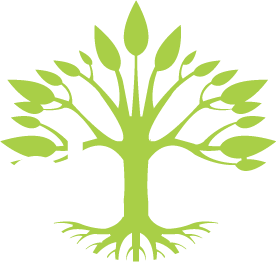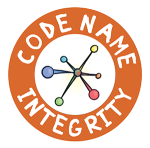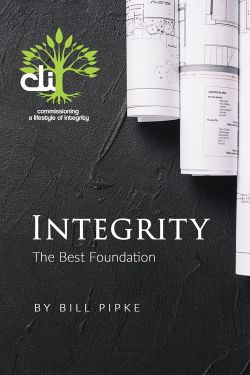Truth - Part 2 Session 2
Welcome back.
I enjoy hearing the stories of when people do the right thing, even when it costs them. And I'm often amazed at the remarkable outcomes that follow.
Now, during these sessions, we discovered that integrity is doing the right thing, even when it costs us. It is the best foundation for life and leadership.
In my book, I share with you about an extremely difficult time when friends betrayed our trust. The temptation to respond in anger and to dishonour them was overwhelming. We felt like turning the truth into a weapon and exposing them. The betrayal put my wife and I into an internal quandary, quite similar to the one Joshua wrestled with when, instead of attacking to Gibeonites, he defended them. It was hard for us to put humility and mercy ahead of vengeance. However, my wife and I look back at that time, and we see how our pain during that season transformed our character, and how that awful trial actually benefited us. And we believe we are stronger and better people today because we chose to implement the six pillars of integrity in our response to betrayal.
Joshua had to choose between integrity and gaining vengeance. Doing the right thing is not always easy. Sometimes, the right thing isn't obvious, and life can be complicated. Living with integrity can be messy. So how can we stay true to our values and live and lead with courage?
As I answer that question, let's venture into the area of ethics. My father used to say, "Truth is not just one tool, but truth is like a whole toolbox. Sometimes truth must be used like a hammer: it drives the point home. Sometimes like a saw: your words are measured and applied to fit a situation. Sometimes like glue: it grips and holds things together. Sometimes like a level: truthfulness exposes the attitudes behind words and actions, and are they balanced?"
Now there is a curious story about doing the right thing the wise way, that comes from a leader named Samuel. He was given the task of anointing the next king of Israel, but the catch was, the present king was still alive, and the future king would not be his son. Now, here's how the story develops, and I'll read part of it for you:
"How long are you going to mope over My rejection of Saul? You know, I rejected him as king of Israel. Fill your flask with anointing oil and get going. I'm sending you to Jesse of Bethlehem. I spotted the very king I wanted among his sons."
"I can't do that," said Samuel. "Saul will hear about it and kill me." And God said, "Take a heifer and announce 'I've come to lead worship to God.' And this heifer is a sacrifice. Make sure Jesse gets invited. I'll let you know what to do next. And I'll point out the one you are to anoint." And Samuel did what God told him.
Was Samuel truthful? He was. Integrity combined with truth and wisdom. And Samuel carried out his assignment without compromising his character. The heifer principle is not about dishonesty, but about actions with wisdom and with truth.
As a pastor for many years, I had the joy of talking with people as they wrestled through some of the ethical questions that surfaced when you read the Bible. Now, the Scripture forced them to think through some pretty challenging issues, things like, 'Why did God honour the midwives who lied to save the lives of new babies?' 'Why did God protect a practicing prostitute who deceived the city officials in order to protect the spies?' And beyond that, why would we honour Corrie Ten Boom or Dietrich Bonhoeffer, who deceived others during World War Two, but they did so as part of the resistance, and in order to save lives?
Life is messy. And sometimes values collide. The ethical questions deserve much more discussion than I can give them here. But my simple response was: When two laws collide, obey the greater law. Do all you can to fulfill both laws. But if it is impossible to honour both, honour the greater law.
And in the case of the midwives in Egypt, there were two laws in conflict. One: Don't lie. Two: Don't kill. Which law is greater? If only one law can be honoured, do the thing of greatest value. And in that case, save a life.
Now, it's rare that this kind of extreme situation presents itself. We should attempt to do the right thing, the thing of greatest value, even when it costs us. I suggest that Joshua, the midwives, Rahab, Corrie Ten Boom, they were all heroic because they pursued the greater law with love.
Truthful people are guided by principles, not preferences. This leads me to a point on how to take advantage of the six pillars of integrity, and not just one pillar. Having six pillars is there to enable you to formulate wise decisions that consider the full decision map. The six pillars provide you a foundation upon which to build your life and your leadership.
So here's our group question to begin to discuss:
We live in a messy world, where it's challenging to live with integrity. How do we make sure our behaviour is guided by values and principles?
How does the environment benefit the tree?




